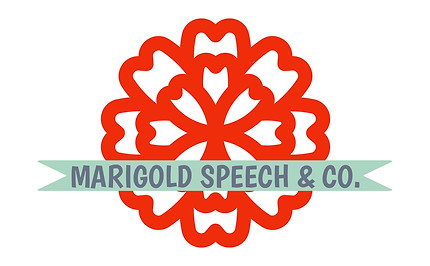Speech Therapy After a Neurological Event: Empowering Recovery
- Lauren Hatchett
- Feb 28, 2025
- 4 min read
Recovering from a neurological event, such as a stroke or brain injury, can be a daunting journey. The path to recovery often requires a multifaceted approach, with speech therapy playing a crucial role in the rehabilitation process. Whether it's aphasia therapy, overcoming swallowing challenges, or cognitive retraining, speech therapy helps individuals regain their independence and improve their quality of life. In this blog, we'll explore how speech therapy supports recovery after a neurological event and how it can make a transformative impact on both physical and emotional well-being.
Understanding the Impact of Neurological Events
Neurological events like strokes, traumatic brain injuries, or other conditions that affect the brain can lead to a range of communication and swallowing challenges. These conditions can impair an individual's ability to speak, understand language, swallow food and liquids, or even remember important information. As a result, patients may face difficulties with daily tasks that most of us take for granted.
While the road to recovery can be long and challenging, speech therapy is an essential part of the rehabilitation process. By targeting speech, language, cognitive, and swallowing functions, speech therapists help individuals rebuild their abilities and regain their independence.
Aphasia Therapy: Rebuilding Communication Skills
Aphasia is a common condition following a stroke or brain injury, where an individual’s ability to speak, understand, read, or write is affected. For many, aphasia can be one of the most challenging aspects of recovery. Speech therapy plays a critical role in helping those with aphasia regain communication skills.
A speech therapist may work with individuals on exercises that focus on improving word retrieval, sentence structure, comprehension, and conversational skills. Therapy may include practicing speaking and listening through structured activities or using alternative communication methods, such as communication boards or apps. The goal is to restore the patient’s ability to communicate in a way that works best for them, whether it’s through verbal communication, gestures, or augmentative and alternative communication (AAC) devices.
The recovery journey with aphasia therapy is often gradual, but with patience and consistency, many individuals experience significant improvements, which can have a profound impact on their social interactions, confidence, and quality of life.
Overcoming Swallowing Challenges: Dysphagia Therapy
Swallowing difficulties, known as dysphagia, can also arise after a neurological event. These challenges can make it difficult or even dangerous to eat or drink, and they can lead to malnutrition, dehydration, or aspiration pneumonia if not addressed.
Speech therapists specializing in dysphagia therapy assess the individual’s ability to swallow safely and effectively. They use a combination of exercises, strategies, and recommendations to help patients manage their swallowing difficulties. These may include techniques to improve the strength and coordination of the muscles involved in swallowing, as well as dietary modifications (e.g., thickening liquids, soft foods) to reduce the risk of choking.
By working with a speech therapist, individuals with dysphagia can regain the ability to eat and drink more comfortably and safely, enhancing their physical recovery and overall well-being.
Cognitive Retraining: Regaining Memory and Focus
Cognitive impairments, such as difficulty with memory, attention, and problem-solving, are common after neurological events. These challenges can make it hard for individuals to perform everyday tasks, follow conversations, or even remember important details.
Speech therapy for cognitive retraining helps individuals regain their cognitive functions through targeted exercises designed to improve memory, attention, and executive functions. Therapists may use strategies like memory aids, structured routines, and games that stimulate cognitive processing. They may also incorporate techniques to improve attention and focus, which can be crucial for engaging in conversations or completing daily tasks.
Cognitive retraining is personalized to the individual's needs and may involve a combination of activities and strategies to address the specific challenges they face. With time, these interventions help patients improve their cognitive abilities, allowing them to regain more control over their lives and activities.
The Importance of Patience and Consistency in Recovery
While speech therapy is incredibly effective in supporting recovery after a neurological event, it's important to recognize that the process can take time. Each person’s recovery journey is unique, and the pace of improvement varies. Progress is often gradual, and setbacks may occur along the way.
Consistency in therapy is key. Regular sessions with a speech therapist, along with ongoing practice at home, help individuals stay motivated and continue making progress. Speech therapists work closely with patients and their families to set realistic goals, track improvements, and adjust therapy techniques as needed. It's also important for individuals to stay patient with themselves, as recovery may not always happen in a linear way.
The Role of Speech Therapy in Holistic Rehabilitation
Speech therapy is a cornerstone of recovery for individuals who have experienced a neurological event. Whether addressing aphasia, swallowing difficulties, or cognitive impairments, speech therapists are equipped with the knowledge and tools to support rehabilitation and help individuals regain their abilities.
By targeting communication, swallowing, and cognitive functions, speech therapy helps individuals rebuild their independence, improve their quality of life, and enhance their confidence as they navigate their recovery journey. The impact of speech therapy reaches far beyond just words—it allows individuals to reconnect with loved ones, regain their sense of self, and fully engage with the world around them.
If you or a loved one is recovering from a neurological event, consider how speech therapy can be an essential part of the rehabilitation process. The road to recovery may be long, but with the right support, real progress is possible.
At Marigold Speech, we are here to guide you through every step of the recovery journey, offering personalized care and support to help you reclaim your voice, your independence, and your life.

Comments